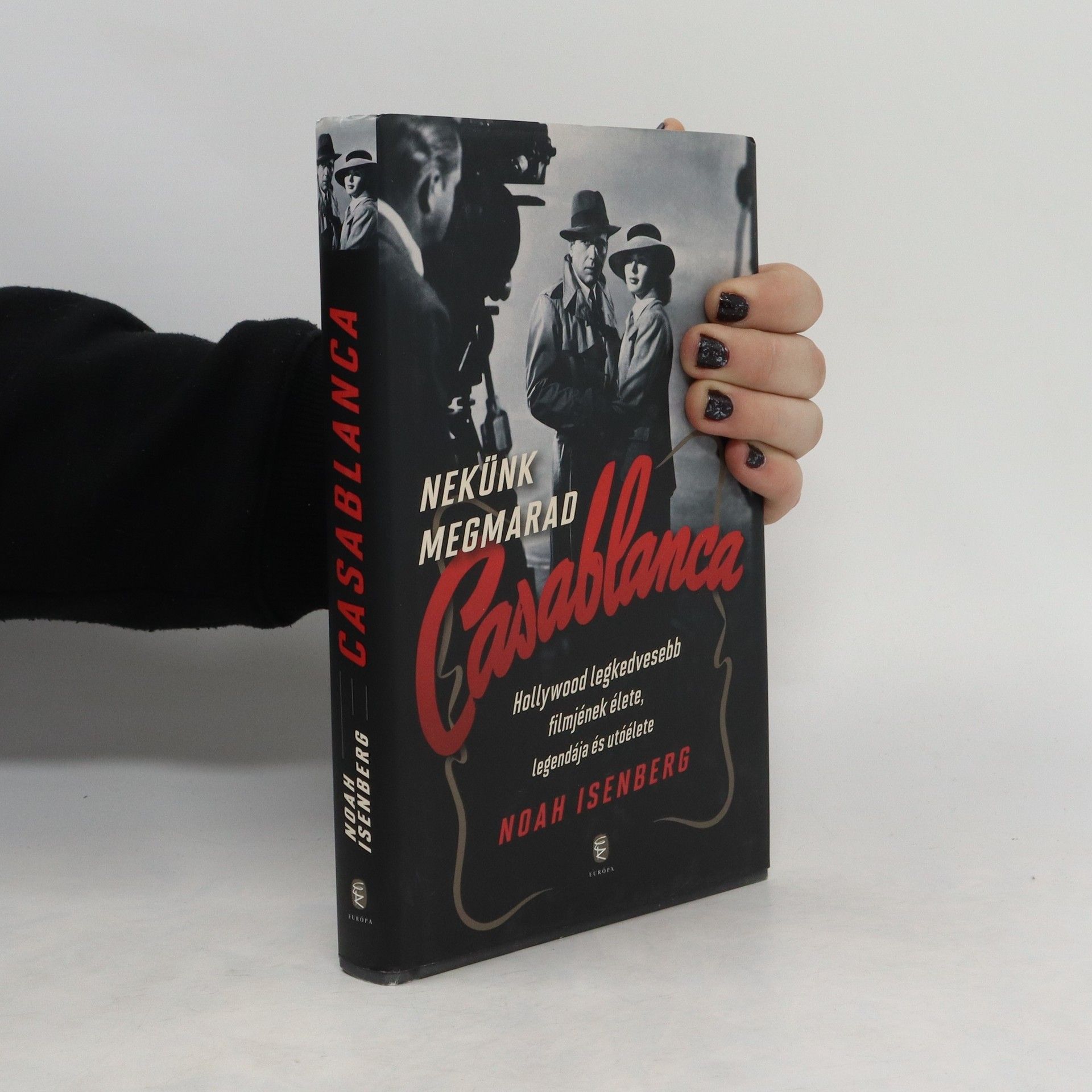The biography delves into the extraordinary life and career of Edgar G. Ulmer, a director known for creating remarkable films on minimal budgets and tight schedules. It explores Ulmer's journey from collaborating with Hollywood legends to working in the fringes of the industry, capturing the essence of noir through his unique vision. The author, Noah Isenberg, combines thorough research with a keen critical perspective, revealing the complexities and artistry behind Ulmer's work, ultimately highlighting his relentless pursuit of creativity despite challenging circumstances.
Noah Isenberg Book order (chronological)
Noah Isenberg is a leading voice in film studies, exploring the cultural and historical significance of cinema. His writing delves into the captivating narratives of film history, uncovering the stories of marginalized filmmakers and dissecting pivotal eras in cinematic production. Isenberg's work offers readers a profound understanding of how film has shaped and reflected society. His prose is both accessible and engaging, making him an ideal guide through the world of movies.




A Times Literary Supplement Book of the Year, chosen by Tom Stoppard, this collection showcases acclaimed film director Billy Wilder's early writings, now translated into English for the first time. Before his iconic films like Sunset Boulevard and Some Like It Hot, Wilder, known as Billie, worked as a freelance reporter in Vienna and Weimar Berlin. This anthology features over fifty articles published between September 1925 and November 1930, including humorous accounts of his time as a hired dancing companion and insightful dispatches from the international film scene. The writings reveal Wilder's sparkling wit and intelligence, offering a glimpse into the cultural landscape of Vienna and Berlin between the wars. He covered a wide array of topics, from big-city sensations and jazz performances to film and theater openings, while profiling colorful figures like Charlie Chaplin, Cornelius Vanderbilt, and the Prince of Wales. Film historian Noah Isenberg provides context in the introduction, and rare photos capture Wilder and his circle during these formative years. Filled with rich reportage and personal reflections, this collection highlights the emerging voice of a young journalist destined to become a great auteur.
We'll Always Have Casablanca
The Legend and Afterlife of Hollywood's Most Beloved Film
- 334 pages
- 12 hours of reading
Released in 1942, shortly after Casablanca surrendered to American troops, this film features a masterful screenplay, iconic soundtrack, and unforgettable performances by Humphrey Bogart and Ingrid Bergman. Hailed by the New York Times as “a picture that makes the spine tingle and the heart take a leap,” it won Oscars for best picture, director, and screenplay, enjoying more revival screenings than any other film in history. It has become a cultural touchstone, with Umberto Eco noting that it represents “not one movie; it is ‘movies.’” In this rich account, celebrated film historian Noah Isenberg delves into the origins of this beloved classic. Through extensive research and interviews with filmmakers, critics, and cast family members, he uncovers the myths and realities behind its production. Isenberg explores the transformation from an unproduced stage play to the classic screenplay, controversial casting decisions, and the challenges with Production Code censors, as well as the impact of the war on the film's reception. He emphasizes the vital role of refugees from Hitler’s Europe, as nearly all cast members were immigrants. Filled with fresh insights, this account reveals what made the film so popular and why it continues to captivate audiences seventy-five years later.
Umberto Eco azt mondta, a Casablanca nem film, hanem filmek. A világ kedvenc szerelmes filmje. A világ kedvenc háborús filmje. A világ kedvenc Bogart-filmje. Ez mind a Casablanca. Két amerikai színdarabszerző ötletéből egy amerikás magyar rendezte, és legalább tíz náció vett részt az elkészítésében.De mitől ennyire népszerű a mai napig egy olyan film, amelyet lóhalálában forgattak, a közreműködői közül egy sem járt soha a helyszínen, és amelynek a főszereplője addig főleg rosszfiúkat játszott? Noah Isenberg filmtörténész a bemutató hetvenötödik évfordulójára megpróbálta megfejteni a titkot. Egy soha be nem mutatott darab bekerült az álomgyárba, és sok kézen ment át, míg kialakult a forgatókönyv. A forgatáson hemzsegtek a nácizmus elől menekülő európaiak. Két híres színész komoly fenntartásokkal vállalta azt a szerepet, amely aztán szupersztárrá tette őket. Egy 178 centis, kopaszodó amerikaiból szexszimbólum lett, és állítása szerint ehhez csak annyi kellett, hogy Ingrid Bergman szerelmesen nézzen rá. Egy fiatal svéd színésznő a bemutató után évtizedekre megtestesítette az eleganciát és tisztaságot. Egy pikáns arcú lány a francia ellenállás arca lett, pedig Hollywoodban élt.Rengeteg fotóval, rengeteg sztorival varázsolja el az olvasót ez a könyv, amely minden filmrajongónak létfontosságú. kevesebb